
National Co-op & WIL Week Profile #4: Aaron Cole
Third-year Honours Arts student Aaron Cole excels in Waterloo's new work-integrated learning and experiential education certificate program, EDGE.

Third-year Honours Arts student Aaron Cole excels in Waterloo's new work-integrated learning and experiential education certificate program, EDGE.
By University RelationsMarch 19 – 23 is National Co-op and Work-integrated Learning (WIL) Week, and the University of Waterloo is celebrating its students’ co-op and WIL opportunities.
We’re proud to present Aaron Cole as our fourth feature this week, a third-year Honours Arts student with a major in Peace and Conflict Studies and a minor in Digital Arts Communication. Cole is completing a work-integrated learning (WIL) experience at the University of Waterloo as an EDGE ambassador. EDGE is a new experiential education certificate program that gives students in regular (non-co-operative) programs an opportunity to develop key professional skills, explore their career options and market themselves to employers. As an EDGE ambassador, Cole helps promote the EDGE program to students on campus.
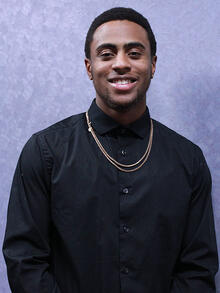 Q: Looking back on your undergraduate career, what has been one of your best work-integrated learning (WIL) experiences?
Q: Looking back on your undergraduate career, what has been one of your best work-integrated learning (WIL) experiences?
A: Being an EDGE ambassador has been one of my best experiences. It’s given me the opportunity to speak to a wide range of people with different backgrounds and personalities. It’s also given me the confidence to get out there, be more involved on campus and get to know my community better. It’s taught me to be more involved in my surroundings, be bolder, take initiative and be more accountable.
Q: What is the biggest difference between traditional student learning and learning through a WIL experience?
A: I like putting different things into action and actually seeing them being done or doing them myself, because the classroom doesn’t always allow for that opportunity. I learn better by doing things, and this is an opportunity for me to put those things I’m learning into action. For example, in PD1 (a professional development course that gives students the tools they need to find their first job, develop core career skills, and succeed in the workplace) we learned how to communicate in the workplace and take more initiative. We played a game that taught us about these things. It’s been great to take that and actually use it at my jobs — these are things that actually work and make sense! Applying those things and not just reading about them is a great experience, especially for people who learn like I do.
Q: What have your WIL experiences taught you about yourself and what you might pursue in your future?
A: I want to get more involved in SEO marketing. I’ve heard a lot about it before, but getting into EDGE and taking PD1 made different things come up for me, and marketing was a big one. I was already on the fence about learning more about SEO and it helped steer me in that direction. Before I was a little unsure and unclear, and EDGE has given me the opportunity to put myself in situations to find out what I want to do and don’t want to do.
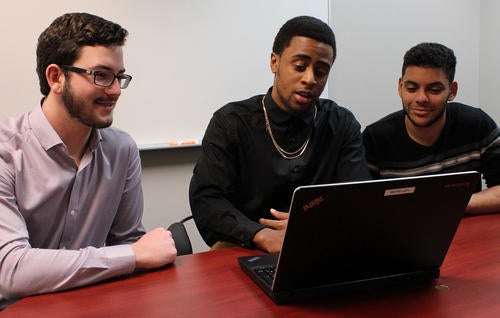
Q: What are you most proud of when it comes to your WIL experiences?
A: I’m proud of the opportunities I’ve allowed myself to be a part of and my willingness to be open to new things. It started for me with joining EDGE. It put me in situations where I might not feel comfortable, but over time, I did get more comfortable because I allowed myself to be in a new environment. Being at the promotional booths has helped because I’m doing more community stuff with the team. Being more involved has helped. I feel like I’ve become a better person, for my community and for my peers. We’re all trying to be better people and make the world a better place.
Q: What has been your best WIL perk or memory?
A: The best experience I’ve had is getting an 80 per cent or higher for the first time. I had a tough transition to university from high school. It was rewarding seeing my hard work pay off. It takes hard work and dedication to get here.
Q: What tips would you give upcoming students re: looking for/completing WIL experiences?
If you’re interested in something, it doesn’t hurt just to try it out. I feel like that’s a big thing — there are a lot of people who might be afraid, maybe because they’re scared of looking silly or the they might not be accepted in certain situations. I feel like to get the best experience, you have to get out of your comfort zone and try new things. Trying new things that you’re interested in is a great way to enhance your experience and your university career.
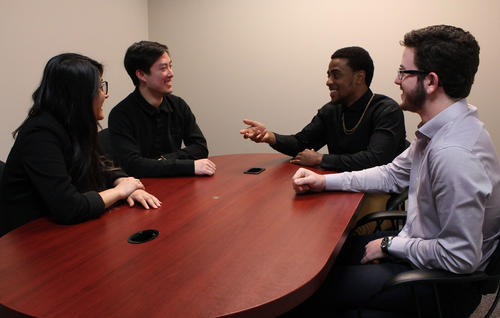
Q: What will you miss most about your current WIL experience?
A: I’ll miss meeting with the other EDGE ambassadors. I’ve gotten to know a couple of them, and we’re a really good team. I’d love to have this group continue working with the program. It’s been a great experience working with EDGE — everyone has been very welcoming, very open and knowledgeable. I’ve loved the experience because it allowed me to meet new people that I wouldn’t have met before.
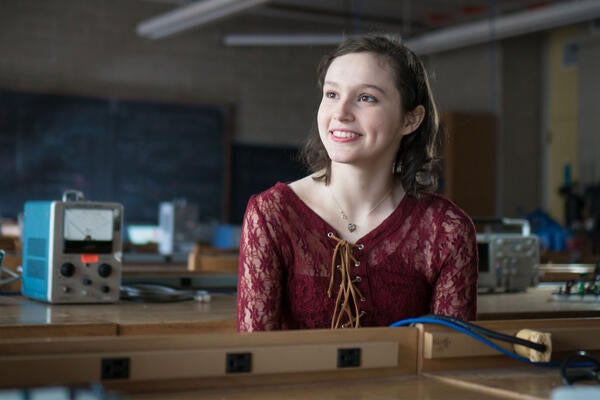
Read more
Astronomy and Physics student, Emily Pass, wins faculty, provincial and national Co-op Student of the Year Awards.
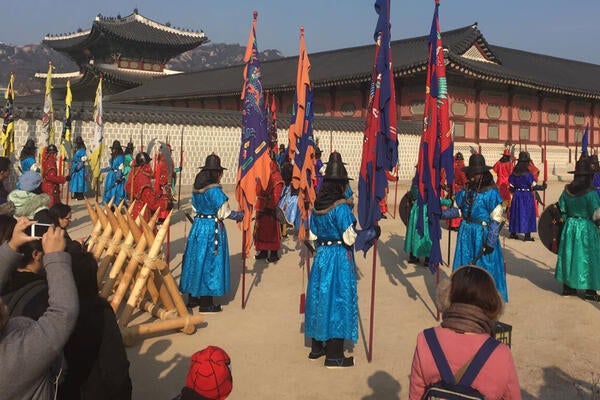
Read more
Second-year mathematical physics student heads to South Korea for unforgettable co-op experience.
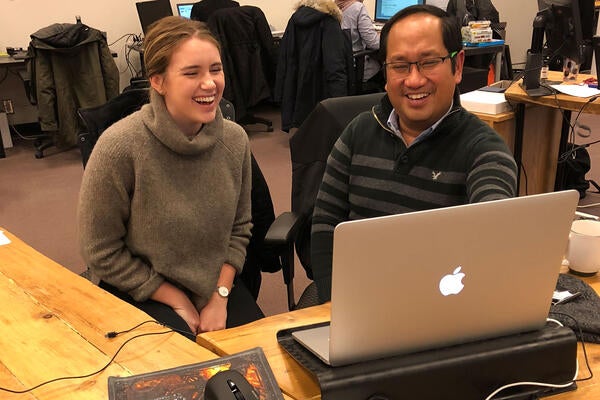
Read more
Third-year Environment, Resources and Sustainability student Hannah Dubber kicks off her co-op in Kitchener as Program Coordinator with Sustainable Waterloo Region.
The University of Waterloo acknowledges that much of our work takes place on the traditional territory of the Neutral, Anishinaabeg, and Haudenosaunee peoples. Our main campus is situated on the Haldimand Tract, the land granted to the Six Nations that includes six miles on each side of the Grand River. Our active work toward reconciliation takes place across our campuses through research, learning, teaching, and community building, and is co-ordinated within the Office of Indigenous Relations.